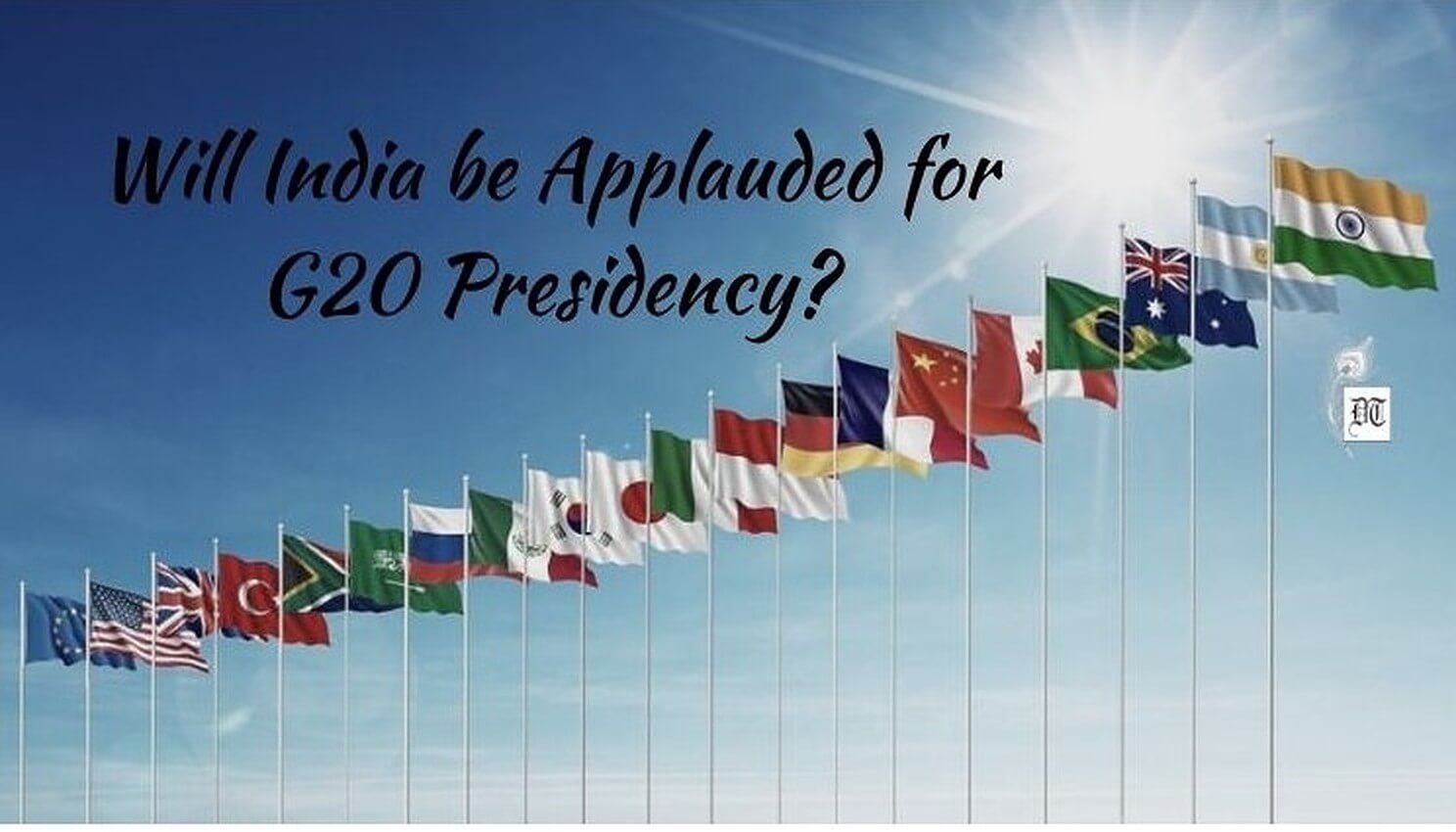Dr Baljeet analyses the many challenges that India must surmount despite its laudable G20 presidency. What are these? – an exclusive for Different Truths.
The G20 is comprised of twenty developed and developing nations: Argentina, Australia, Brazil, Canada, China, France, Germany, India, Indonesia, Italy, Japan, Mexico, Russia, Saudi Arabia, South Africa, South Korea, Turkey, the United Kingdom, and the European Union. This Group represents 90% of the global GDP, 50% of international trade, and two-thirds of the world’s population. It indicates the Group’s importance and relevance in geopolitics.
With 2008’s global financial crisis, the Group, formed in 1999, has had annual meetings since its inception.
With 2008’s global financial crisis, the Group, formed in 1999, has had annual meetings since its inception. The Group does not have a permanent secretariat of its own. The presidency is supported by Troika-previous, current and coming. Troika will comprise Indonesia, India, and Brazil during India’s presidency. The main objectives of this International Forum are: 1. Focus on economic issues such as international financial stability, 2. Sustainable development, and 3. Climate Change mitigation.
The G20 presidency’s agenda is directed by two parallel tracks: the Finance Track and the Sherpa Track. The Finance Track is led by Finance Ministers and Central Bank Governors, while the Sherpas head the Sherpa Track. The Sherpas are personal emissaries of the leaders of the member countries. Within these two tracks are other working groups representing the ministries of member nations, invited nations, and numerous international organisations. These working groups meet regularly throughout the term of each presidency. In these meetings, agenda items are discussed extensively for the Summit.
India assumed the G20 presidency from Indonesia on December 1, 2022.
India assumed the G20 presidency from Indonesia on December 1, 2022. And holds it until November 30, 2023. India’s G20 Presidency theme is “Vasudhaiva Kutumbakam”, or One Earth. One Family. One Future. Its priorities are:
1. Green development, Climate Finance and Lifestyle for the Environment (LiFE)
2. Accelerated, Inclusive and Resilient growth.
3. Accelerating progress on Sustainable Development Goals (SDGs)
4. Technological Transformation and Digital Public Infrastructure
5. Multilateral Institutions for the 21st century.
6. Women-led development.
To attain these objectives, India has started several time-bound initiatives. For example, Rs 35,000 crore has been earmarked for green energy in the Budget 2023. By 2030, the goal is 500GW of non-fossil energy capacity, 50% renewable energy, one billion tonnes of carbon emissions reduction, and net-zero emissions by 2070. In 2021, Indian Prime Minister Narendra Modi cautioned COP26 delegates in Glasgow, Scotland, on climate change, a significant danger to humankind. He underlined that global behaviour change might mitigate this catastrophic disaster.
… India is impoverished and unequal, with the wealthiest 10% receiving 57% of national income and the lowest 50% just 13%.
Inequality, poverty, unemployment, inadequate education, a flawed health system, racial and gender discrimination, water and sanitation, etc., are other pressing concerns that global leaders must address. According to the Global Inequality Report 2022, India is impoverished and unequal, with the wealthiest 10% receiving 57% of national income and the lowest 50% just 13%. It necessitates a substantial quantity of funds, a considerable number of resources, a well-thought-out strategy, and a larger-scale political objective.
Does India have enough finances and resources to achieve its goals of green energy and other ailing problems? Will the developing nations assist India in solving these problems? There is no answer to these pertinent questions at present. According to the latest Lancet report of February 20, 2023, India is unlikely to achieve 50% Sustainable Development Goals (SDGs) by 2030.
Besides, in the foreign field too, the Indian position is edgy and precarious.
Besides, in the foreign field too, the Indian position is edgy and precarious. Its relations with neighbours, particularly China and Pakistan, are far from cordial. How can they see India on the crest? Moreover, China has become a world power. India stands nowhere near it in almost every field, whether technology, military, or economy. Will it like to see India as its rival in world politics? No, certainly not.
Further, whenever a resolution is passed in the United Nations General Assembly on the ongoing Russia-Ukraine War, Indian abstention is conspicuous, while China sides with Russia. This leads to the indignation of the USA and its allies, who advocate for the Ukraine cause and are against Russia, the aggressor. In this scenario, can the USA and the western world count on Indian friendship? And can the American coterie recognise India as its leader when it dictates its terms to the world? Double standards are unlikely to work in modern power politics. ‘Sitting with feet in two boats’ will lead India to nowhere. It has to be on the safer side.
India has been bestowed with the G20 presidency. It’s a remarkable occasion to showcase its accomplishments…
India has been bestowed with the G20 presidency. It’s a remarkable occasion to showcase its accomplishments across different domains. And recommend solutions for stabilising the global economy and ultimately resolving global issues. This is a moment of immense pride for India. Will India steal the limelight at the world level and be appreciated by the big bosses? Given the circumstances at home and abroad, it will be mere wishful thinking to expect that unless it sets its own house in order.
Picture design by Anumita Roy






 By
By
 By
By
 By
By
Excellent! You’ve put your finger on the pulse with clinical accuracy. Keep writing.